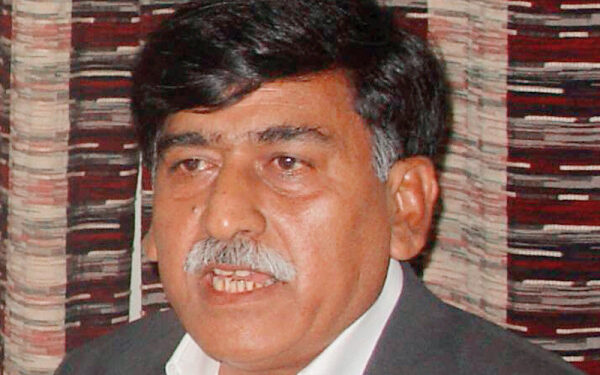Karachi :Chairman of the Muhajir Qaumi Movement (MQM-H), Afaq Ahmed, has issued a strong statement condemning the federal government’s repeated increases in petroleum product prices, warning that such measures are crippling the already struggling masses and pushing them towards poverty and food insecurity. His remarks come as petrol prices saw a fresh hike of Rs 5.36 per liter, taking the total increase to Rs 18.54 per liter in just 45 days.
Ahmed voiced deep concern over what he termed the government’s insensitivity to public suffering, especially amid a period of record inflation, high unemployment, and economic stagnation. He warned that if these trends continue, the common man will be left with no option but to survive on grains, unable to afford even the most basic necessities of daily life.
Petroleum Price Hike Timeline: A Steady Climb Towards Economic Crisis
To understand the full gravity of Afaq Ahmed’s statement, it is important to examine the timeline and scale of the petrol price increases over the last few weeks:
| Date | Increase in Petrol Price (Rs/Liter) | New Price (Rs/Liter) |
|---|---|---|
| June 16, 2025 | 4.80 | Rs 257.95 |
| July 1, 2025 | 8.36 | Rs 266.79 |
| July 16, 2025 | 5.36 | Rs 272.15 |
In total, the government has raised the price of petrol by Rs 18.54 per liter within a span of just one and a half months, sparking public outrage, criticism from political parties, and concern from economists over the long-term implications.
Afaq Ahmed’s Criticism: ‘Success Only on Paper, Failure on Ground’
Afaq Ahmed lambasted the current government, stating that while officials are boasting of success in official statements and financial reports, the reality on the ground tells a very different story.
“This government is only successful on paper,” Ahmed said. “On the streets, in markets, in homes—what we see is suffering, joblessness, and anxiety.”
He accused policymakers of being disconnected from ordinary citizens, alleging that their decisions are driven more by IMF conditions and external influences than by a desire to serve the nation.
Impact on the Common Citizen: ‘Dependent on Grains’
Perhaps the most striking aspect of Afaq Ahmed’s statement was his assertion that rising petrol prices will force ordinary people to become “dependent on grains”—a metaphor for bare-minimum survival.
📉 Fuel Price Hikes Trigger Inflation Across the Board
In Pakistan, an increase in fuel prices has a domino effect on the prices of:
- Transportation (public and private)
- Food items (due to increased logistics costs)
- Utility bills (especially electricity generated by oil)
- Daily consumer goods
With these compounding effects, people with fixed or low incomes find themselves unable to keep up, often having to cut back on food, education, and healthcare.
Ahmed pointed out that low-income households are now spending 50% to 70% of their monthly earnings just on food, with meat, milk, oil, and vegetables becoming unaffordable for many.
Public Reactions: Widespread Frustration
The public response to the latest fuel price hike has been swift and bitter. Across Karachi and other major cities, citizens took to social media, and some small protests were reported near petrol stations.
🗣️ Nazia Bibi, a school teacher in Karachi, said:
“My salary hasn’t increased in three years, but every time I go to the market, I pay more. Now I can’t afford to take my children to school in a rickshaw.”
🗣️ Asif Malik, a delivery rider, commented:
“When fuel prices go up, I have to work two shifts just to earn what I used to make in one. I’m running on fumes—literally and financially.”
Government’s Justification: OGRA’s Role and External Pressures
The recent increases in petroleum product prices have been attributed to recommendations made by the Oil and Gas Regulatory Authority (OGRA). According to official statements, the price adjustment was made in response to:
- Rising global crude oil prices
- Currency devaluation against the U.S. dollar
- Commitments made to the International Monetary Fund (IMF)
The Finance Division maintains that these measures are part of broader efforts to stabilize the economy and reduce the fiscal deficit. However, critics argue that the working class is paying the price for these reforms, while elite sectors remain largely unaffected.
Economic Context: Inflation and Stagnant Wages
According to the Pakistan Bureau of Statistics (PBS), the country’s Consumer Price Index (CPI) showed a year-on-year inflation rate of 23.1% in June 2025. Food inflation specifically has surged past 30%, with essentials like wheat, rice, sugar, and cooking oil reaching all-time highs.
Meanwhile, the minimum wage, fixed at Rs 37,000/month, is insufficient to meet a household’s basic needs under current market conditions. Many daily-wage earners, private-sector employees, and small business owners are struggling to survive as their incomes remain static amid rising living costs.
Political Fallout: Fueling Discontent Before Local Elections
Afaq Ahmed’s remarks also come at a politically sensitive time. With local government elections scheduled in several provinces in the coming months, the rising cost of living has become a central campaign issue.
Political analysts believe that the government’s decision to raise petrol prices in quick succession could erode public trust and potentially impact voter turnout and preferences, especially in urban centers like Karachi, Lahore, and Rawalpindi.
Afaq Ahmed’s Call to Action: People’s Voice Must Be Heard
The MQM-H chairman concluded his statement with a call to action, urging the government to reconsider its pricing policy and prioritize relief for the working class.
“This is not governance. This is a war on the poor,” he said. “If the government does not reverse this anti-people decision, we will be left with no choice but to protest alongside the masses.”
He also called on civil society, media outlets, and opposition parties to raise their voices against what he called an economic massacre of the middle and lower classes.
Conclusion: Rising Petrol Prices—A Ticking Time Bomb
As Pakistan grapples with an economic crunch, rising fuel prices are becoming the symbol of public despair and political discontent. While the government cites external obligations and global market trends, citizens and political leaders like Afaq Ahmed are demanding domestic solutions, fair taxation, and targeted subsidies to ease the burden on the people.
Whether these protests and criticisms result in a policy reversal remains to be seen. But one thing is clear: every additional rupee at the pump is another blow to millions struggling to survive.

























